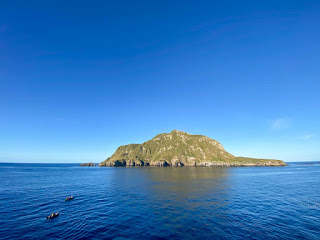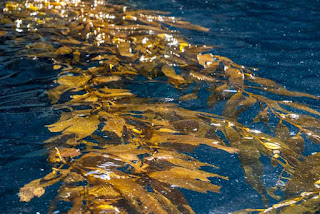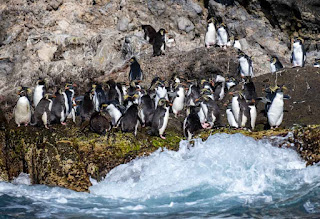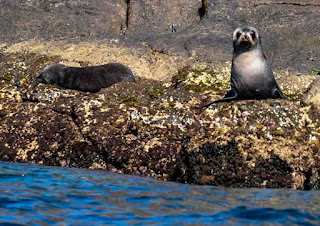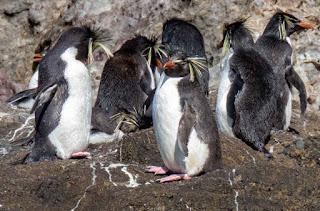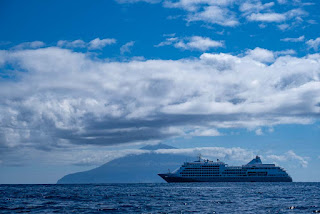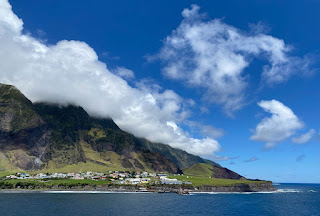It took us 5 days sailing through the rough South Atlantic to get to the most remote inhabited island in the world – the British Overseas Territory of Tristan da Cunha. Quite understandably, on an island with a population of just 243, without an airport, with just a small hospital (with no ventilators), and 4 days sailing from Cape Town, they just weren’t willing to risk us setting foot on the island (we have one case of Covid onboard).
However, we did the next best thing, by jumping into the zodiacs and having a tour around the coast of the neighbouring Nightingale Island to see its prolific birdlife. On a gorgeous morning, there were so many birds swooping around – gulls, terns, petrels, skuas, albatrosses – but, when the nearest bit of land is over 1,000 miles away, it’s not surprising that this little haven is so popular.
We cruised up to a wonderful colony of Rockhopper Penguins, decorated with those beautiful bushy yellow “eyebrows”, living up to their name as they hopped about the cliff face with remarkable agility for creatures that look so ungainly. They shared the amazing volcanic formations that form the island with a large number of fur seals, slipping in and out of the water with ease.
All the while, the volcanic shape of the main island, Tristan da Cunha, loomed in the distance, like the forbidding lair of an evil Bond villain. We sailed over to have a closer look at one of the most fragile communities in the world – protected from the pandemic and the cares of the modern world by a huge moat that means they have to be as self-reliant as possible (they get visits from supply ships about 9 times a year).
There’s only one slice of land that’s habitable – Edinburgh of the Seven Seas – a scattering of houses surrounded by a small section of pasture (we could see cows dotted around the grass), and a small area of allotments called Potato Patches (you’ll never guess what the main crop is).
So, visits from outsiders are pretty rare – which meant that school stopped as soon as our Captain sounded the horn, and the children ran down to the coast to wave at us in the distance. I wished we could have come ashore and said hello – but this was the next best thing, enjoying these views that very few people on this planet get to see.
